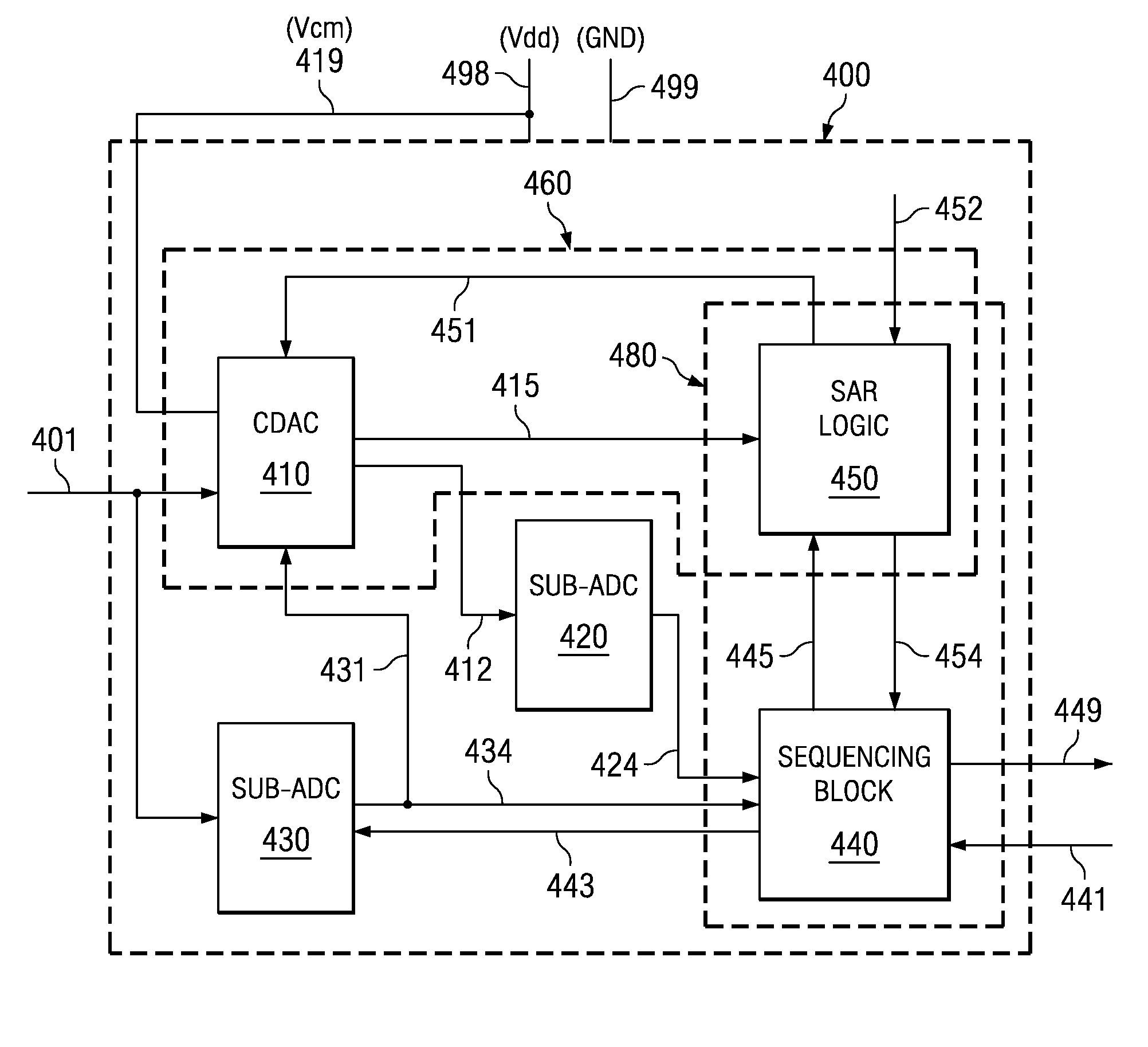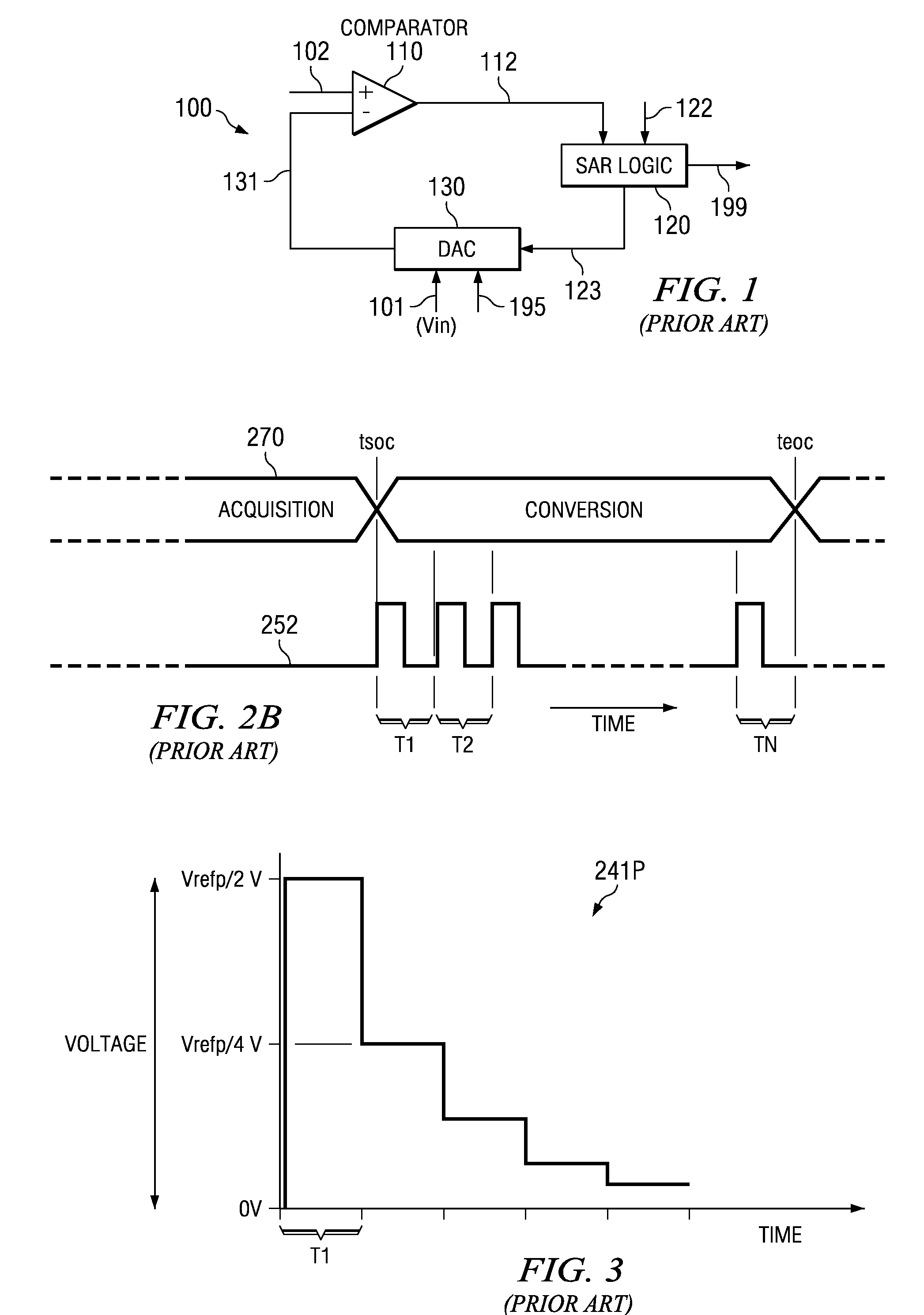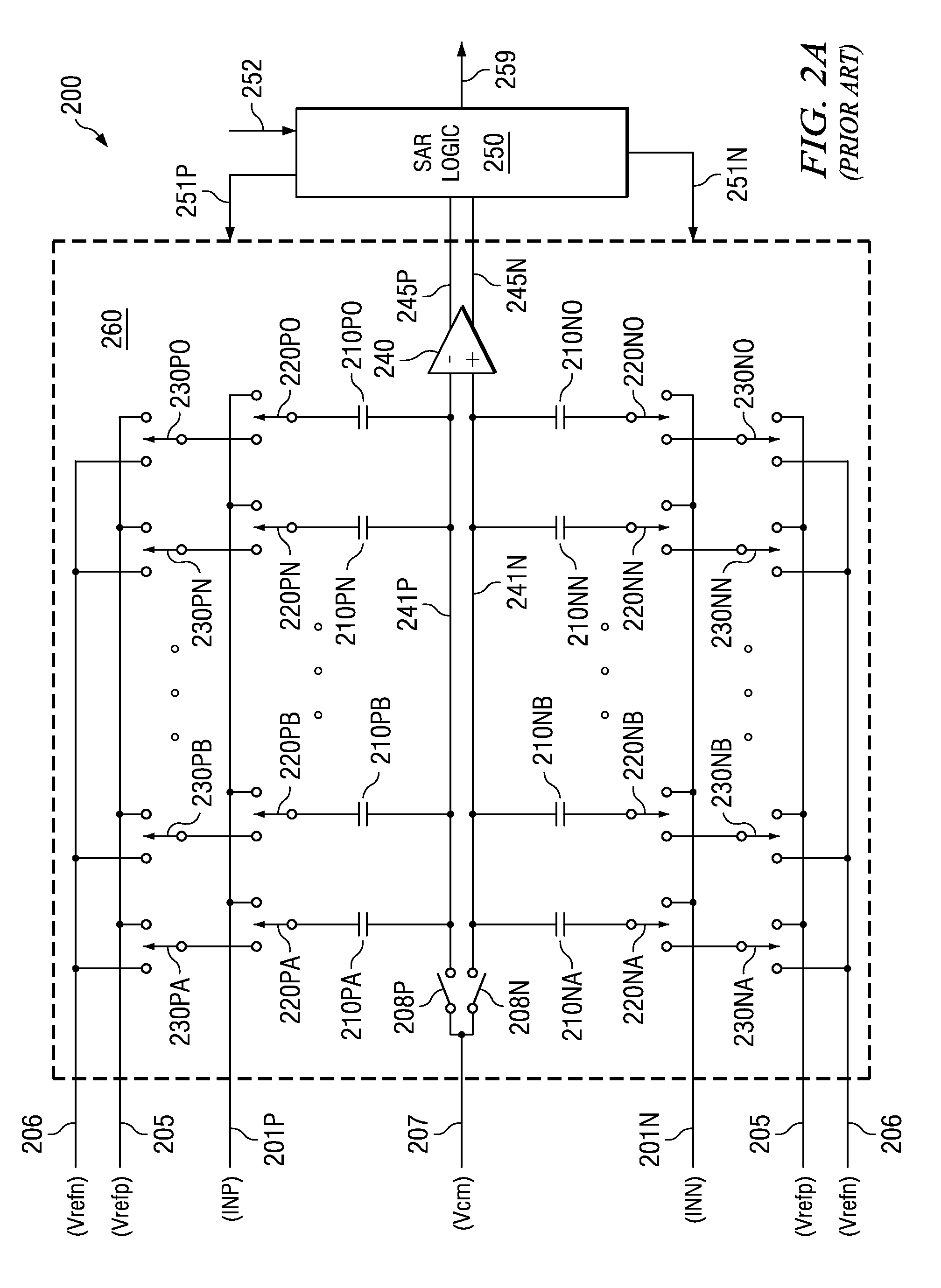High speed high resolution ADC using successive approximation technique
a high-resolution, successive approximation technology, applied in analogue/digital conversion, physical parameter compensation/prevention, instruments, etc., can solve the problem of low throughput performance of the technique, and achieve the effect of enhancing the overall speed of the conversion
- Summary
- Abstract
- Description
- Claims
- Application Information
AI Technical Summary
Benefits of technology
Problems solved by technology
Method used
Image
Examples
Embodiment Construction
[0030]The broad architecture of an ADC provided according to an aspect of the present invention will be clearer in comparison with the implementation of a SAR ADC. Accordingly, the description is provided first in reference to a SAR ADC.
[0031]SAR ADC
[0032]FIG. 1 is a block diagram of an example successive approximation register (SAR) analog to digital Converter (ADC) in a prior embodiment. While the SAR ADC of FIG. 1 is shown implemented to process single-ended signals, several features of the present invention can be implemented in differential SAR ADCs as well. SAR ADC 100 is shown containing comparator 110, SAR logic 120, and digital to analog converter (DAC) 130. As is well known in the relevant arts, a SAR ADC generates a digital code representative of the strength of an input analog signal (at a sampled time instance) through a binary search process through all possible quantization levels.
[0033]Comparator 110 compares an intermediate analog signal received on path 131 against...
PUM
 Login to View More
Login to View More Abstract
Description
Claims
Application Information
 Login to View More
Login to View More - R&D
- Intellectual Property
- Life Sciences
- Materials
- Tech Scout
- Unparalleled Data Quality
- Higher Quality Content
- 60% Fewer Hallucinations
Browse by: Latest US Patents, China's latest patents, Technical Efficacy Thesaurus, Application Domain, Technology Topic, Popular Technical Reports.
© 2025 PatSnap. All rights reserved.Legal|Privacy policy|Modern Slavery Act Transparency Statement|Sitemap|About US| Contact US: help@patsnap.com



